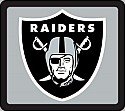
My Hero
Everybody has a hero. For Abraham Lincoln his idol was Henry Clay and the former Illinois resident did just about everything in his power to let people know that Clay was his man. On July 6, 1852, just one week after Clay’s death, Lincoln gave a eulogy to his fallen hero.
Lincoln began his speech by discussing the origins of Clay which began on the during the American Revolution in 1777. Like Lincoln, Henry Clay was a native of Kentucky but at that time the area was a vast woodland left untamed by Europeans. He referred to Clay as “freedoms champion” because of the political work that Clay had completed throughout his career. The career of Henry Clay is one of the greatest political resumes in American History. Other than becoming President, a post that he ran for a few times, Clay had held just about every important post within the American political system.
Here are some of Clay’s posts:
Elected as a Democratic Republican to the United States Senate to fill the vacancy caused by the resignation of Buckner Thruston and served from January 4, 1810, to March 3, 1811; elected as a Democratic Republican to the Twelfth and Thirteenth Congresses and served from March 4, 1811, to January 19, 1814, when he resigned; Speaker of the House of Representatives (Twelfth and Thirteenth Congresses); appointed one of the commissioners to negotiate the treaty of peace with Great Britain in 1814; elected as a Democratic Republican to the Fourteenth, Fifteenth, and Sixteenth Congresses (March 4, 1815-March 3, 1821); Speaker of the House of Representatives (Fourteenth, Fifteenth and Sixteenth Congresses); elected to the Eighteenth and Nineteenth Congresses and served from March 3, 1823, to March 6, 1825, when he resigned; again served as Speaker of the House of Representatives (Eighteenth Congress); appointed Secretary of State by President John Quincy Adams 1825-1829; elected as a National Republican to the United States Senate on November 10, 1831, to fill the vacancy in the term commencing March 4, 1831; reelected as a Whig in 1836 and served from November 10, 1831, until March 31, 1842, when he resigned; chairman, Committee on Foreign Relations (Twenty-third and Twenty-fourth Congresses), Committee on Finance (Twenty-seventh Congress); unsuccessful presidential candidate of the Democratic Republican Party in 1824, of the National Republican Party in 1832, and of the Whig Party in 1844; again elected to the United States Senate and served from March 4, 1849, until his death in Washington, D.C., June 29, 1852.
As you can see Clay’s career spanned a long time and he helped America through several wars and prevented several others. He served under Presidents Madison, Monroe, Adams, Jackson, Van Buren, Tyler, Harrison, Fillmore, Pierce, Polk, Taylor and Buchanan. As of 1850 he was the most experienced politician in America. Lincoln identified his in his eulogy for his hero:
“The career of Henry Clay was a public career. From his youth he has been devoted to the public service, at a period too, in the world's history justly regarded as a remarkable era in human affairs. He witnessed in the beginning the throes of the French Revolution. He saw the rise and fall of Napoleon. He was called upon to legislate for America, and direct her policy when all Europe was the battle-field of contending dynasties, and when the struggle for supremacy imperiled the rights of all neutral nations. His voice, spoke war and peace in the contest with Great Britain.”
Clay was the main man on two great compromises that managed temporarily to tame sectional passions. These were the Missouri Compromise (1820) and the Compromise of 1850. Both postponed the Civil War and helped save America from breaking up during its adolescent years. He was truly one of the greatest Congressmen who ever took a seat in our nations capital and some historians label him as the greatest Speaker of the House in American history.
Henry Clay was everything that Abraham Lincoln wanted to be and he identified his admiration for the man by stating “Clay was without an equal, and the heaven born endowment, in the spirit of its origin, has been most conspicuously exhibited against intestine feud. On at least three important occasions, he has quelled our civil commotions, by a power and influence, which belonged to no other statesman of his age and times.”
Do you remember Henry Clay? Despite his influence on American history and Lincolns admiration few people can recall him or his time as one of our nations greatest leaders. Unlike Lincoln, he is largely a forgotten footnote in American history. His memory was most likely overshadowed by the turbulent times that came after his death and one wonders if 1860-1865 would have ever occurred as they did if Henry was around. Perhaps in 1852 Lincoln called upon all future Americans to remember the man that like George Washington had saved our country. “But Henry Clay is dead. His long and eventful life is closed. Our country is prosperous and powerful; but could it have been quite all it has been, and is, and is to be, without Henry Clay?”\
Abe Lincoln is my hero so I guess that makes Henry Clay my "grand (father) hero"??




No comments:
Post a Comment